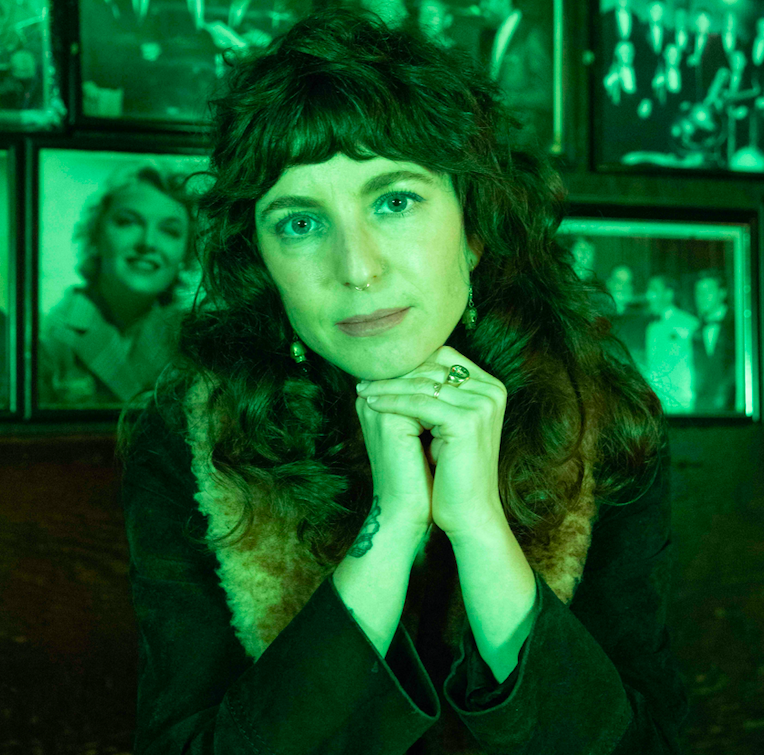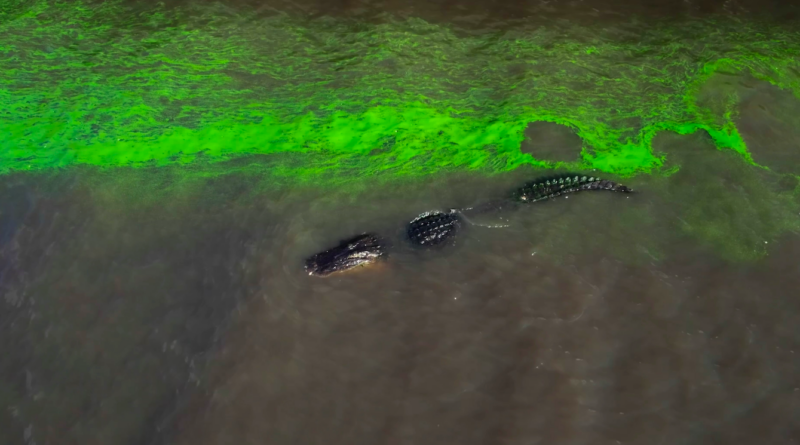INTERVIEW: New Everglades documentary chosen for prestigious NYC film festival
Photo: River of Grass, directed by Sasha Wortzel, will play the Margaret Mead Film Festival. Photo courtesy of the artist / Provided by Silk Strategy with permission.
After a successful run at the True/False Film Festival, the documentary River of Grass is ready to bring its story of the Everglades to New York City audiences. The Sasha Wortzel-directed feature is set to play Sunday, May 4, at the Margaret Mead Film Festival, held annually at the American Museum of Natural History in Midtown Manhattan.
The film tells the story of the Everglades, the unique region that can be found on the southern tip of Florida. Its guiding light is the landmark eco-book by the legendary activists and journalist Marjory Stoneman Douglas, named The Everglades: River of Grass. Wortzel’s lens captures the unbelievably beautiful and precious flora and fauna of this protected land, but she also digs deeper and tries to understand how this region has been a place of refuge for individuals and communities throughout history. To that end, she includes modern-day voices of Indigenous people who have called this area home for generations.
“More broadly, I tend to make work that is interested in sites and stories or figures in history who maybe have been ignored, excluded or erased from the historical record,” Wortzel said in a recent Zoom interview. “And I’ve made a number of projects that specifically looked at queer histories often along waterfront areas in New York City, where I currently am based; however, I grew up in South Florida in the Everglades region, and I was feeling really called to focus on the region I’m from, a story about home.”
The director was noticing the headlines about the Everglades, and they weren’t always positive ones. She learned about fish kills and degradation to the water quality. Of course, she also followed the intense and frequent hurricanes that hit the Sunshine State, and she kept thinking about how these stories were impacting this “river of grass.”
“I wanted to understand why this was happening, and I found myself turning to Marjory Stoneman Douglas’ book, River of Grass, not only because I was aware of it and had read excerpts in a course in college, but I knew that what was happening at home had something to do with how we had reengineered the Everglades system,” she said. “Even though Marjory’s book was written in 1947, it’s still the go-to resource guide on the region, so I began there. And as I was reading it, it quickly became clear that that would be the creative departure point for a film I would make about the Everglades watershed.”
Wortzel said this South Florida region holds a strange and interesting space in the American imagination. The national park that protects much of these lands is located not far from Miami on the east side and not far from Fort Myers on the west side. It’s largely flat terrain, with a constant, but barely perceptible flow of water from north to south, eventually spilling into the Gulf of Mexico and the coastal areas of the Florida Keys. Animal life is abundant, including incredible birds, numerous alligators, a few crocodiles and even some panthers. Douglas was instrumental in the area’s preservation.
“Yet so many Americans, especially Floridians, those of us who grew up in South Florida, had never spent much time in the ecosystem and don’t quite understand what it looks like, how it functions,” the filmmaker said. “So it was a real dream to spend time in the region and to really get to know in a deeper way each of the five or six distinct ecosystems that collectively, in an interdependent way, make up the broader Everglades region, and to also get to know my neighbors in the region who are living in each of these distinct areas and maybe grappling with slightly different issues that are arising from the way that we’ve changed the water system. … It’s a really dreamy, beautiful space, and it was a real gift to get to spend time there through the wet and the dry seasons and to experience the natural cycles and the sounds.”
The common misperception of the Everglades is that it’s only a national park, but the region extends well beyond the park boundaries and encompasses other land, both public and private.
“I think that the Everglades historically has really provided a respite or refuge for many people who maybe were escaping slavery or Indigenous folks who are grappling with the violences of colonization,” she said. “[The] family that I follow has been there for six generations, making a living off the water. There’s a very rich heritage and history there and a rich lineage of resistance, and I think it’s a very interesting and almost fugitive landscape. It was important to not only share and capture the richness of the very communities that live with and take care of this place in the present day, but also to look at the historical and cultural lineages that are underpinning each of these stories today.”
There is a bit of an elegy about Wortzel’s film, a notion that beautiful and important land can often be taken for granted. The film poses the question whether the glories of this river of grass will continue into the future.
“The hope is that the Everglades will go on,” the director said. “I personally started this project in a place of stuckness and climate grief, which at the time, I didn’t have that word for it. I’ve learned that [word] through the making of the film. And so part of the motivation of making this film was for me to process what it means to be from a place that is so threatened and that may cease to exist in my lifetime. Yet I think through the process of making this film the threats are there, very much so, and the Everglades has been fundamentally changed and is changing. Yet I think the process of making this film and connecting with a broader collective of people who have an intimate connection to place has actually given me some hope that the Everglades will go on, with or without us, hopefully with us though.”
By John Soltes / Publisher / John@HollywoodSoapbox.com
River of Grass, directed by Sasha Wortzel, recently played the True/False Film Festival and will next appear at the Margaret Mead Film Festival in New York City. Click here for more information and tickets.


